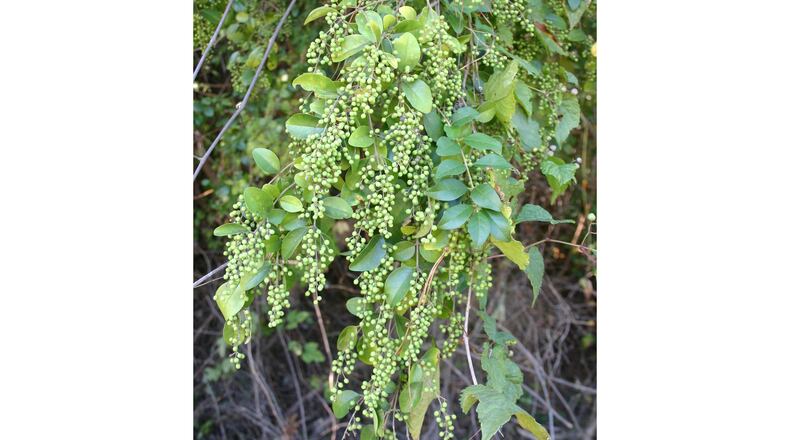Q: We have two large Chinese privet in our backyard (and tons trying to come up). Should we chop it down? Karen Hinds, Fulton County
A: Yes, there are several reasons why you should chop down your Chinese privet. Foremost is its invasiveness. If you have ever seen a ‘mother’ privet in bloom and surrounded by hundreds, if not thousands, of half-grown privet sprouts and seedlings, then you have seen the harmful potential of privet. This shrub quickly fills open space with a monoculture that is attractive exactly one time a year: in April, when it is covered in white flowers but has a scent that many people fan away with their paperback and say, “That smell is just too much for me, let’s go inside.” Privet is an incessant traveler. The banks of thousands of Southern streams are lined with this ubiquitous plant. And no saying is more true than “If a bird can fly there, then there’s a privet nearby there.” It’s the official invasive plant of the Georgia Bulldogs. I can think of other reasons to get rid of privet, but its prolific proclivities seem most important.
It hurts my heart to say these negative things about privet. As you might know, the field at Sanford Stadium is surrounded by hedge made up of Chinese privet, ligustrum sinense. Perhaps the national champion University of Georgia Bulldogs should proclaim their hedge as National Champion Invasive Plant.
Q: I am new to gardening in the Southeast. I lived in the Pacific Northwest for 40 years and have never experienced big ant hills. I don’t want my yard to be full of poison; is there a way to co-exist? Barbara West, email
A: Welcome South! Just as the Pacific Northwest has endemic pests like banana slugs, Georgia has a pest called fire ants. The little critters will set you on fire if you stand on a mound accidentally. Wearing clothes becomes of secondary interest.
Coexisting with fire ants is not terribly hard if you get started early and are methodical about it. You will never eliminate all the fire ants, but using bait and poison will allow you to coexist. Control is done in two parts: baiting for long-term management and poisoning for immediate results. You can use either organic or synthetic insecticides. Spinosad is the most common organic ingredient. Amdro is an easy to find synthetic bait. D-limonene is a common organic mound drench, and there are numerous synthetic poisons for fire ants.
About the Author
The Latest
Featured

